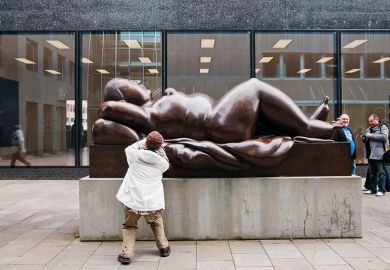Peet Morris, former lecturer in statistics at the University of Oxford, is reading Brian Clegg’s Ten Days in Physics that Shook the World: How Physicists Transformed Everyday Life (Icon, 2021). “Physics is often seen as a fundamental but difficult science, tied to topics such as black holes and the Higgs boson. Clegg highlights 10 points in the history of physics and physics-based engineering that have resulted in significant changes to our ordinary lives. Ranging from the publication of Newton’s Principia on 5 July 1687 to the first connection on the internet on 1 October 1969, he describes each breakthrough and gives pen portraits of the individuals involved, as well as putting the day into the wider context of the events of that year. Mixing well-known names such as Einstein and Curie with the less familiar, from Kamerlingh Onnes to James Biard and Gary Pittman, this is an engaging exploration, ending with interesting speculation on the nature of a future 11th day.”
Jane O’Grady, co-founder of the London School of Philosophy, is reading Costica Bradatan’s The Other Bishop Berkeley: An Exercise in Reenchantment (Fordham University Press, 2007). “Unlike most examinations of George Berkeley’s (1685-1743) ideas, Bradatan’s seeks to unearth what he actually ‘wanted to say’, instead of how he anticipates modern analytic philosophy. Berkeley’s ‘signs’ supplied by God in ‘an universal language’ are (contends Bradatan) not just his substitute for causation; they are part of the medieval ‘book of the world’ tradition and, arguably, of a Plato-like two-realm metaphysics. This interpretation, whether or not it works overall, certainly accords with Berkeley’s account of the Creation having been of ‘real things’ – objectively permanent ‘archetypes’ of which our individual perceptions are ‘ectypes’. Bradatan also discusses Berkeley’s last book Siris (most commentators ignore it), with its bizarre cosmos of ‘pure fire’, aether and light. Possibly Berkeley had changed his mind on metaphysics by the time he wrote it, but altogether Bradatan left me wondering whether Berkeley was ever an immaterialist at all.”
Harriet Dunbar-Morris, dean of learning and teaching at the University of Portsmouth, is reading Keith Trigwell and Mike Prosser’s Exploring University Teaching and Learning: Experience and Context (Palgrave Macmillan, 2020). “This is a long-awaited follow-up to the authors’ 1999 book Understanding Learning and Teaching, which focused on students’ experiences. Here, drawing on 30 years of work, they focus instead on teachers’ awareness of their experience of teaching, and provide practical, research-informed guidance to support the enhancement of students’ learning and outcomes. The result will be of use to anyone who really cares about teaching and wants to make a difference to what students get out of higher education, which is certainly something that drives me. If you want to learn from research made practical, this is the book for you. I particularly appreciated the chapters on leadership of teaching and learning, and the link between research and teaching.”
Register to continue
Why register?
- Registration is free and only takes a moment
- Once registered, you can read 3 articles a month
- Sign up for our newsletter
Subscribe
Or subscribe for unlimited access to:
- Unlimited access to news, views, insights & reviews
- Digital editions
- Digital access to THE’s university and college rankings analysis
Already registered or a current subscriber? Login








